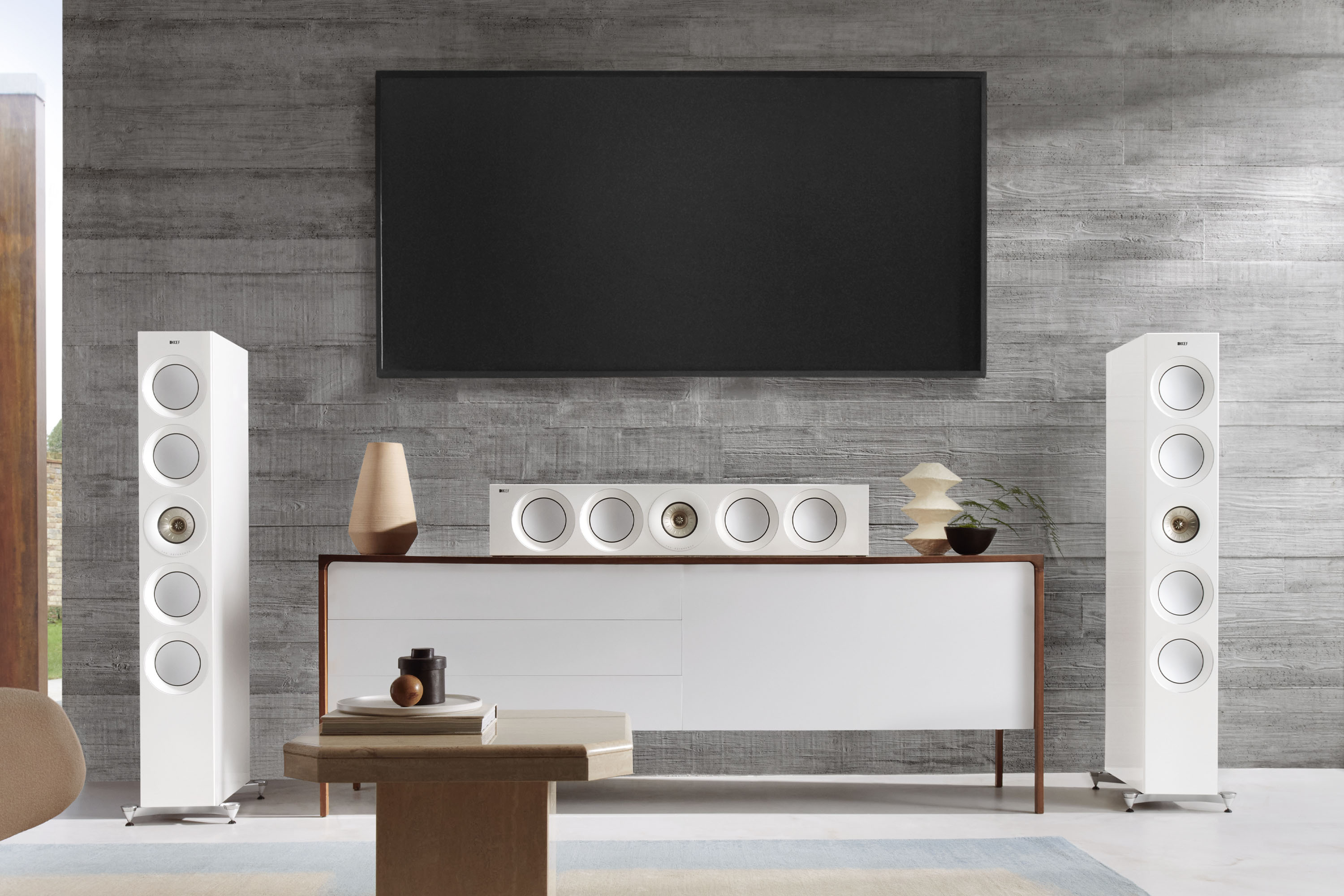Regardless of how hard you try, you will never be able to eliminate the effect your room has on your audio. However, with a little experimentation, you may be able to use your room to your favour. The positioning of your speakers relative to your listening position is probably the most important factor you need to consider when setting up your listening room, so start with the physical set-up of your speakers and listening position before you worry about anything else. Always consult the user manual for your speakers for optimum speaker positioning guidelines.
Here are our tips and recommendations for ideal speaker placement.
1. Your speakers should be between 1800mm to 2400mm apart (dependent on physical size), with a wall/boundary behind them, and the prime listening position should be the same distance from the speakers as the speakers are apart – forming an equilateral triangle. Of course, with KEF's Uni-Q technology, the 'sweet-spot' for the best stereo image is broadened considerably, giving you more versatility than regular discreet designs in your listening room but it's good to have a baseline to start from.
2. For the best low-frequency response, experiment with the distance between your speakers and the front wall (the wall behind the speakers). The typical optimal distance is between 300mm and 1000mm, both speakers should be the same distance from the front wall.
3. Try to avoid having the speakers too close to the side walls as possible.
4. For optimal stereo imaging the left and right side-walls should be the same distance from the loudspeakers and the surface should be made of the same material.
5. The optimal distance to the side-walls from the speakers varies with the speaker and the room’s audio environment. Proximity to the side-walls can create an imbalance in the timbre of the speakers, but conversely, a complete lack of interaction with side-walls may result in a very small stereo image. Experimentation is the key.
6. If you are going to acoustically treat your room, think diffusion instead of absorption. Absorption may quiet some reflections, but it may do so at the cost of making your room sound dull and lifeless – a little reverberation or 'liveness' is a good thing!

7. Toeing-in the speakers may help with high-frequency response and the perception of the stereo image (make sure you toe-in both speakers equally). With KEF's Uni-Q, balance doesn't suffer as you move off-axis (off the equilateral triangle) so keeping the speakers flat (not toed-in) may actually be an excellent solution for rooms that are too lively. Experiment before you invest in acoustic treatments.
8. Make sure your distances are equal. Use a tape measure. Your brain is very sensitive to differing arrival times of sound to your ears.
9. Bass traps can help if they are done right. Bass traps can do wonders to increase low-frequency response in your room, but a bass trap that is not constructed correctly, or is not the right size, can do more harm than good. Remember that in a standard room there are twelve corners, not just four, that affect your bass response. Soft furnishings and heavy drapes can act in the same way, so avoid hard surfaces and lots of glass.
10. If you're still not happy, you may need to start with a different approach to your set-up. Change your room around. Listening position is just as important as speaker position, and the elements and surfaces in your room play a huge role in how your room sounds as well.
Looking to add more bass? For those in smaller living spaces, read our tips on how to add a subwoofer to your speaker system - without upsetting your neighbours.



